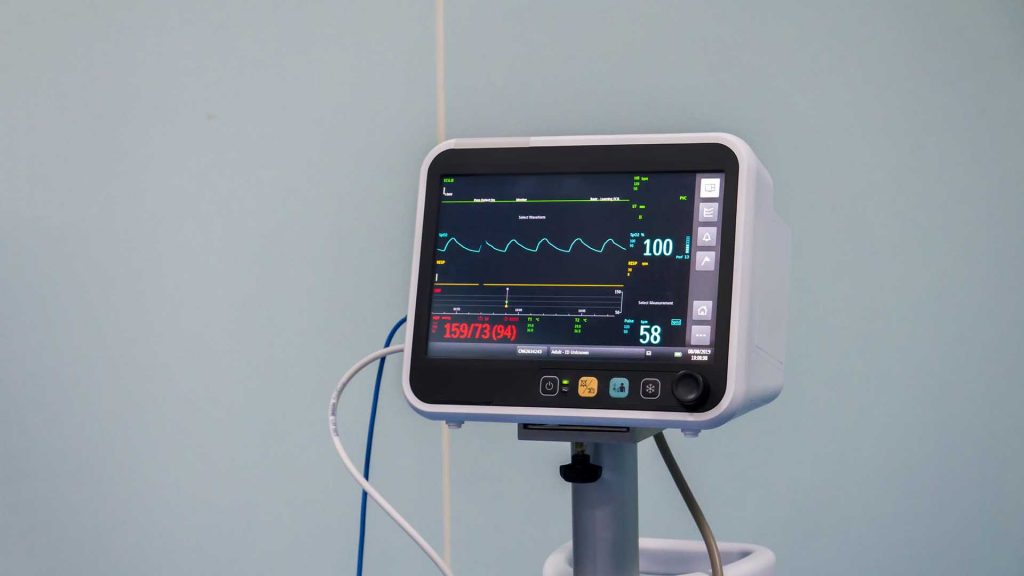When someone overdoses on drugs or alcohol, they experience extreme physical side effects that could be fatal if they are not attended to as soon as possible. If a person who is overdosing does not receive medical attention in a timely manner, their body could shut down.
A person who is overdosing only has a limited amount of time to receive help. If you interact with someone who is at risk for having an overdose, it is important to understand how much time you have to get them the medical attention they require.
What Is An Overdose?
An overdose is a biological process that the body goes through when someone consumes a large amount of illicit drugs, prescription drugs, or alcohol. This experience represents an extreme level of drug or alcohol toxicity and could either be intentional or accidental.

Signs That Someone Is Having An Overdose
How will you know if someone is experiencing an overdose? While every overdose is different depending on the individual and the substance they consumed, there are some general signs that you could look out for.
Here are signs that someone may be overdosing on drugs or alcohol
-
- They are mentally confused or delirious
- Their limbs are jerking or rigid
- They’re experiencing extreme chest pain
- Their skin color changes
- They pass out or faint
- Their body temperature increases
- They have a higher pulse rate than normal
- They’re sweating excessively
- They are nauseous or are vomiting
- They’re having seizures or convulsions
- They are breathing slowly or irregularly
What Causes An Overdose?
While overdose is commonly associated with illicit drugs like heroin and methamphetamine, a variety of other substances can trigger this experience as well. Some other types of substances that may lead to overdose include alcohol, opioids, benzodiazepines, cocaine, hallucinogens, inhalants, marijuana, and more.
Certain individuals are more likely to experience an overdose than others. This could depend on several risk factors such as someone’s age, body size, tolerance, past alcohol or drug use, etc.) Also, an individual is at the highest risk for overdose when they inject a substance into their body, as opposed to swallowing or snorting it.
People can either experience an overdose accidentally or purposely. In cases where overdose is an accident, someone could have this experience simply if they take too much of a prescription drug without realizing it. They could also trigger an accidental overdose if they recreationally consume a high level of drugs. But in other cases, someone may try to overdose for suicidal purposes.
Effects & Risks Of An Overdose
The body can become overwhelmed by substances in a variety of ways. However, the most common cause of death after overdose is respiratory failure. Some other severe consequences that overdose may lead to include:
-
- Cardiac arrest
- Stopping of the heart
- Cardiovascular collapse
- Vomiting & choking
- Severe dehydration
- Hypothermia
How Long Does It Take For An Overdose to Shut Down the Body?
This depends on if a death after overdose is from respiratory failure or another cause. On average, however, 1-3 hours pass between when a person takes a drug and when they die from overdose. If medical responders arrive within that window, the person is more likely to survive.
While overdose can be scary, it doesn’t always have to be connected to death. If the experience is handled appropriately, someone can still live a happy and healthy life after overdose.
How to Treat An Overdose
It’s essential to seek some sort of medical attention if you see someone experiencing an overdose. There are Good Samaritan Laws in many states that legally protect both the person overdosing and the individual helping them. If you find yourself in a situation with someone who is overdosing, be sure to lay them on their side if they are passed out. If they are awake, make sure they don’t eat/drink or shower until they are cleared to do so by a medical professional.
While there may not be an FDA-approved treatment for every type of overdose, medical centers and rehabilitation facilities have a set of solutions to treat these issues. There are many medications designed to alleviate or stabilize the symptoms of an overdose that can be prescribed by a doctor. Medical attention can be what saves someone’s life if they are going through a physically threatening overdose.
Post-Overdose Substance Abuse Recovery
After an overdose, the person who experienced it should undergo medical detox and therapy in a supervised and supportive environment. Inpatient treatment is likely the best option for those who went through an overdose. One-on-one therapy, group meetings, and other treatment methods are there to help individuals understand and learn from their overdose or addiction.
To learn more about treatment options after intentional or accidental overdose, contact our team of mental health and substance abuse professionals by calling 267.209.7313.



